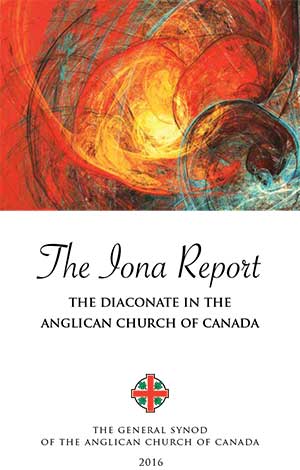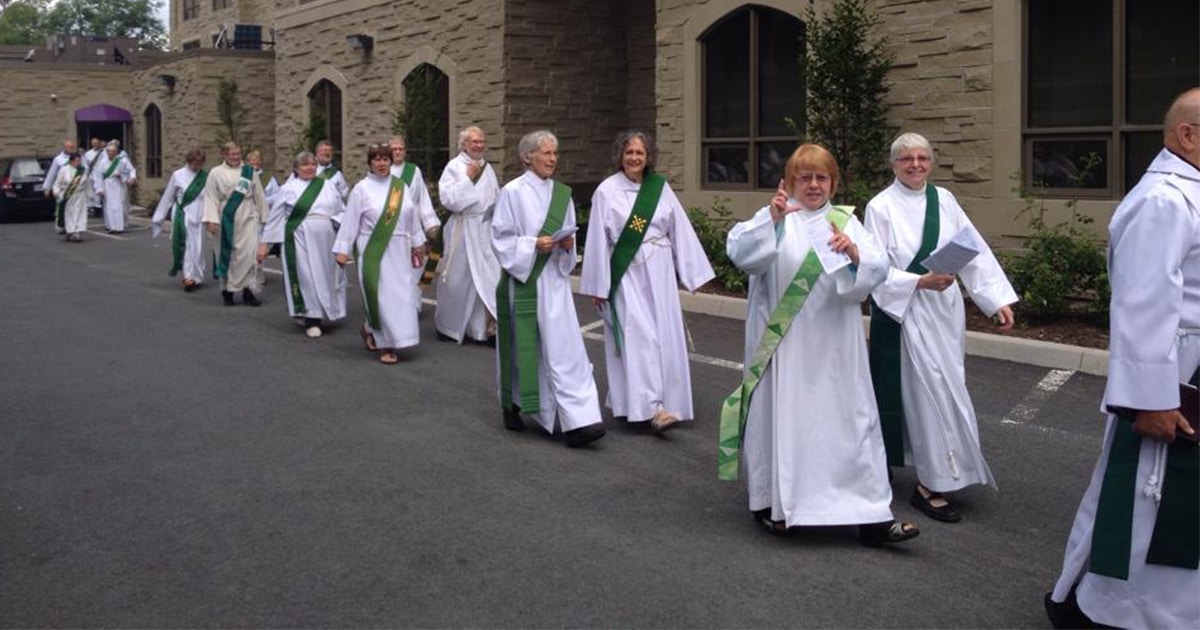What is the diaconate and where is it going?
More than 25 years have passed since significant reflection on the nature of diaconal ministry within the Anglican Church of Canada took place at the national level. In the ensuing decades, a wide discrepancy in the practice and understanding of the diaconate across the country had developed.
The formation of the Task Force on the Diaconate by the Faith, Worship, and Ministry Committee in 2014 emerged from growing urgency to develop standards or uniformity among dioceses to address this discrepancy. Yet paradoxically, as noted by task force member the Rev. Deacon Maylanne Maybee, “the essence of the diaconate is to be responsive to changes and differences of context, so there is no one-size-fits-all solution.”
Enter The Iona Report. Produced by the task force after close study of existing resources, the document is available free online and is named after the Iona Drive boardroom at the University of British Columbia where members held their major drafting meeting. The report presents a vision of the diaconate in the Anglican Church of Canada that Maybee said “aims to identify areas of skill, knowledge, and attitude that can be adapted to local circumstances” while providing “a thread of consistency in how deacons are selected, used, and understood across Canada.”
 A key part of the report is its preface, which defines the role of a deacon by centring it in terms of the ministry all Christians undertake through baptism. The Greek word diakonia, meaning service, applies to the universal responsibility of the baptized to serve God in the world, while ordination identifies specific leadership roles for individuals in the church.
A key part of the report is its preface, which defines the role of a deacon by centring it in terms of the ministry all Christians undertake through baptism. The Greek word diakonia, meaning service, applies to the universal responsibility of the baptized to serve God in the world, while ordination identifies specific leadership roles for individuals in the church.
In their own role as leaders, deacons encourage the rest of the baptized into ministries of services, healing, and justice by reflecting these ministries in his or her actions. The Rev. Deacon Kyn Barker, a task force member who serves as coordinator of deacons for the Diocese of Toronto, described deacons as “encouraging everybody else to live out their diaconal ministry … A deacon serves as an example, as a prompt for everybody else.”
The Very Rev. M. Ansley Tucker, rector and dean at Christ Church Cathedral in Victoria, B.C. who also served on the task force, described the role of deacons theologically as one of servanthood and proclamation of the gospel.
“They’re bringing the Good News—as all Christians should—but bringing the Good News outside of the doors of the church into the world … The deacon has to be someone who has the gifts to actually make some change, to get people together, to advocate, to collaborate, and so on.”
The competency model presented in the Iona Report offers a framework for deacons and aspiring deacons to demonstrate the appropriate skills, understanding, and character they will require in the context of ministry.
Each competency has three levels—at selection, at ordination, and through lifelong learning—to qualify deacons at different stages in their careers.
“We talk a lot about lifelong learning,” Tucker said. “But this actually gives content to what that might look like.”
Barker highlighted the validity and flexibility of the competencies by pointing to their usefulness in two very different models of deacon selection. In Toronto, which practices a parish-first model, deacons are raised up out of the congregation and tend to stay in that location. But in Victoria, where the process is more centralized, deacons are raised in the community at large and could be assigned to any parish where the bishop determines they may be of use.
“The fact that [the competencies] work in two extremely different models of process leading to ordination is, I think, significant,” Barker said.
Maybee said that the Iona Report is a “working document” designed to encourage further conversation. She encouraged dioceses to set up study groups to assess the report against the actual experience of deacons and guidelines already in use, pointing to the “Lively Questions” section as a possible framework for conversation.
“The Church’s discussion about the diaconate is not closed, and digging deeper into the issues will bring us into a new place of understanding regarding baptism and all the orders.”
View and download The Iona Report.
Interested in keeping up-to-date on news, opinion, events and resources from the Anglican Church of Canada? Sign up for our email alerts .

